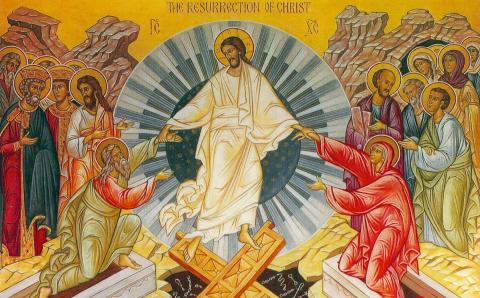I am writing only days after Steven Timmermans’ sudden resignation as the Christian Reformed Church in North America’s executive director. Timmermans sped up his pending retirement to Feb. 20, 2020. I thank him for his faithful and able leadership. Even when we occasionally disagreed, we have always respected each other. I admired his singular dedication to getting everyone to pull in the same direction toward our ministry goals. The grief many staff felt over his departure testifies to his leadership and character. We shared a common bond as fathers of children with Down syndrome and exchanged notes about our children. I pray for God’s blessings for him, his wife, and his children in this next phase of his life.
However, the abruptness of his resignation due to governance restructuring and a change in the executive director’s job description has alarmed many and given rise to speculation. But as he told The Banner, Timmermans chose to resign now so he would “not to be in the way of needed change.” Having served for over three years with Timmermans, it is no surprise to me that he chose to act out of a desire for what’s best for the CRCNA.
I do not see this restructuring as a power grab by the Canada Corporation. Neither is this done with the intention of splitting the denomination along national boundaries. I believe Canadian legislation made this restructuring necessary, not optional. It was done to protect Canadian CRC members who may not even realize they were potentially at risk.
The pending restructuring was not secretly sprung on people. Letters about it were sent to congregations in both the U.S. and Canada in early February. The Council of Delegates’ executive committee, comprising delegates from both countries, agreed it was needed. I know Steven Timmermans knew about it. Staff members on both sides of the border had been briefed.
From where I sit, I see due diligence done and good-faith attempts to communicate. Nevertheless, there was tension and hurt, especially among U.S. staff. Change is rarely ever easy or painless. However, I am certain there was never any ill intent on anyone’s part.
In the midst of these changes, I am thankful for Colin Watson Sr. stepping in as acting executive director until synod in June. Watson is the first person of color in this executive role for the denomination.
I am confident of God’s providence through these changes. People in the pews will probably not feel any effects. Denominational staff will bear the brunt of change. That’s how good leadership should work.
I am hopeful that these structural changes will help us as one denomination to better join God’s mission in its specific Canadian and U.S. contexts. This is God’s church, and God’s mission will prevail. Change is not easy. But it brings opportunities.
We must remember that God’s mission is the church’s priority. Our governance structure must suit the holistic mission work God has set before us. If this structural change fosters greater missional flexibility to adapt to the different cultural contexts of the two countries, then God’s mission is all the better for it.
About the Author
Shiao Chong is editor-in-chief of The Banner. He attends Fellowship Christian Reformed Church in Toronto, Ont.
Shiao Chong es el redactor jefe de The Banner. El asiste a Iglesia Comunidad Cristiana Reformada en Toronto, Ont.
시아오 총은 더 배너 (The Banner)의 편집장이다. 온타리오 주 토론토의 펠로우쉽 CRC에 출석한다.
You can follow him @shiaochong (Twitter) and @3dchristianity (Facebook).








